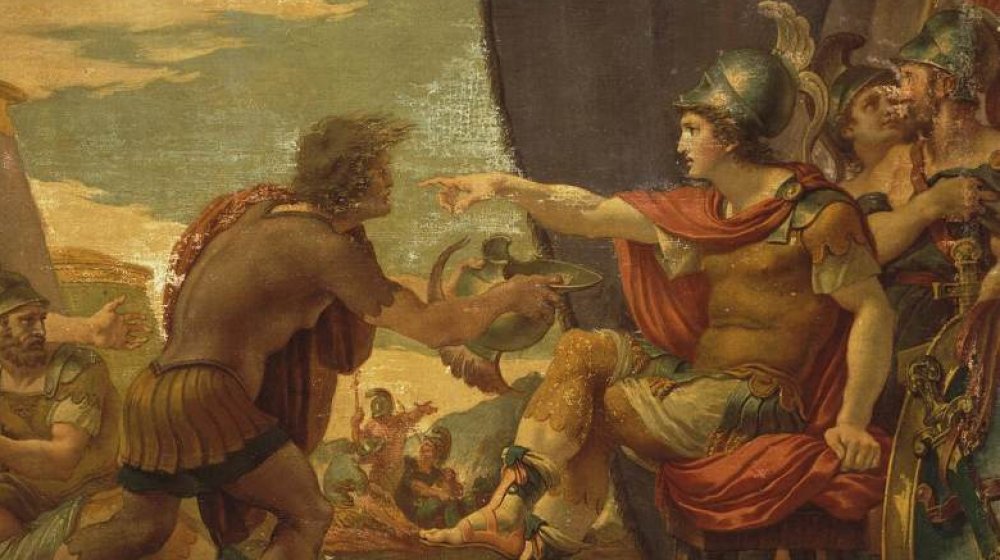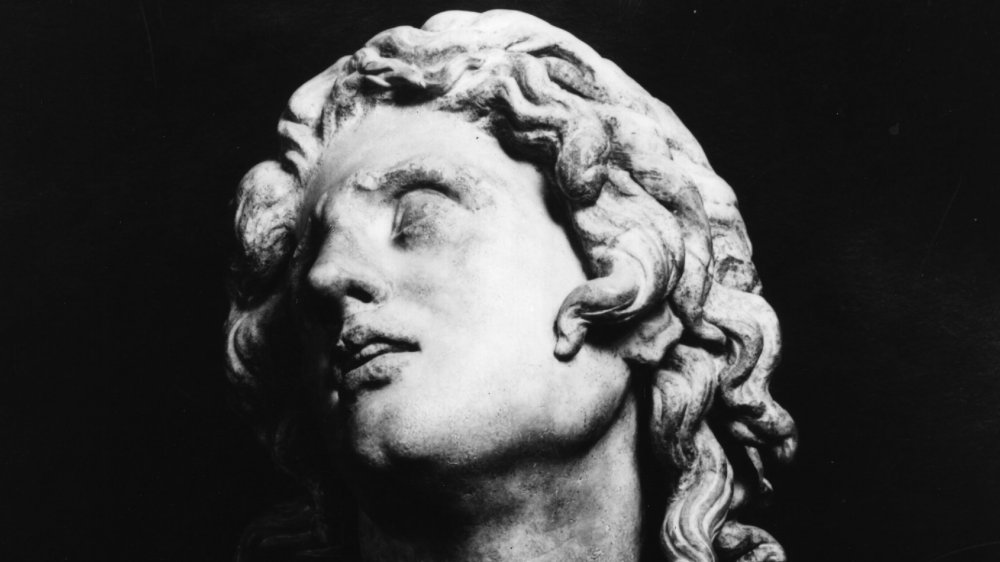What Really Killed Alexander The Great?
When you think you're a god, you inevitably expect to lord over everything. But no matter how enormous a person's god complex might be, it would take an ungodly amount of faith in oneself to actually attempt, let alone expect to conquer all the known world. As Macedonia's king and a consummate world-beater, Alexander the Great portrayed himself as an "invincible god," according to Livius, though he might not have believed it himself. Regardless, he supremely believed in himself. As History describes, he adopted the motto, "there is nothing impossible to him who will try." Spurred on by that ethos, Alexander and his armies achieved the unthinkable because they thought they could.
Darius III of Persia made the mistake of thinking Alexander couldn't topple his powerful empire. After the latter's ascension to the Macedonian throne in 336 B.C., Darius sent him a polo mallet and ball along with a condescending message. As recounted in Sports and Games of the 18th and 19th Century, Darius essentially said "stick to sport and leave the business of war to those who could handle it." Instead of telling Darius where to stick his mallet, Alexander used it as motivation, envisioning himself as the mallet and the polo ball as the world he longed to conquer.
In 331 B.C., Alexander wrecked Darius's world and became king of Persia. In his 32 years on Earth, Alexander "successfully conquered the then-known world from Macedon, through Greece, down to Egypt, across Persia, to India." per the Ancient History Encyclopedia. And he managed to pull it off in just 16 years. The one thing he couldn't conquer was his own mortality.
Death conquers the conqueror
Who or what, besides Nietzsche, could possibly kill a god? As History details, in 323 B.C., Alexander fell grievously ill while preparing to invade Arabia. He held on for 12 agonizing days before dying. Even in death, he refused to seem human. Historical texts suggest that it took six days for his corpse to show any indications of decomposition. If people doubted his divinity before, they didn't then. But in the many centuries since then, experts have been in doubt about how he died.
Per the Independent, toxicologists proffered the theory that Alexander unwittingly drank wine from a poisonous plant known as Veratrum album or false hellebore, which ancient Greeks used to induce vomiting. In 2019, Dr. Katherine Hall offered a second opinion, arguing that that Alexander was conquered by the paralyzing neurological disorder, Guillain-Barré Syndrome. According to this account, the reason Alexander didn't decompose for six days was that he hadn't actually died yet but simply couldn't move. However, Alexander died, it definitely wasn't a great way to go.

